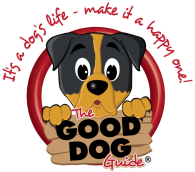The love for your four-legged friend grows yearly, so taking care of their health and approaching old age raises many questions. Veterinarians are ready to provide answers, but not all of them can be considered adequate. Caring for an ageing dog is a necessity that helps maintain comfortable living conditions.
Owners of large and medium-sized breeds should understand that the age of ageing begins after 5-6 years. From now on, you should pay as much attention to your friend as possible and provide the necessary support. The tips of specialists and animal psychologists will help you go through this process and provide comfortable conditions.
Features of caring for an ageing dog
Age-related changes in large-breed dogs begin after 5 years. Animals need special care, including a balanced diet. In addition, several universal recommendations will help maintain the health of your pet:
1. Regular examinations by a veterinarian. The onset of disease development coincides with age-related changes. Timely detection of problems allows you to adjust the diet and provide optimal treatment. Tests and examinations should become regular, as the comfort of an ageing dog depends on it.
2. Provide proper grooming. Professional groomers create a neat look and care for the coat. Turning to specialists will allow you to avoid unnecessary nervous shocks and properly care for your pet. Removal of tartar and teeth is carried out exclusively in specialized clinics if necessary.
3. Maintain your pet’s usual lifestyle. Unexpected changes in daily routine lead to rapid ageing. Given this feature, dog owners are advised to maintain the same routine. The duration of walks, active play, and other features of the routine should consider the existing problems and the pet’s age.
Following these simple guidelines makes it possible to maintain mobility and avoid deterioration in health. Any changes negatively affect the condition of an ageing dog, and this should be taken into account.
Tips for a new lifestyle
Health deterioration cannot be avoided for a long time, but it is possible to alleviate the signs of ageing. A common problem associated with old age is dental and gum disease. A few tips can help prevent a quick loss:
– Choosing the right food for ageing dogs is a necessity, for which it is important to consider the composition (amount of vitamins and minerals, animal protein);
– Avoid using tricky treats and food, as this worsens the condition of teeth and gums;
– Regular veterinary examinations are one way to monitor an ageing dog’s condition.
Tracking age-related changes is possible without the help of specialists. Common signs of ageing include shortness of breath, urinary problems, and hearing loss. High-quality nutrition and special vitamin supplements are used to improve general health, but getting rid of diseases completely is impossible.
During walks, you should control the activity of an ageing dog. This way, you can reduce the load on the joints. However, keeping muscle tissue in good condition is impossible without walking. In such cases, the duration and route should be reconsidered.
Weight correction is possible if a special diet is followed. You should avoid foods that contain a lot of salt and solid foods. Controlling the amount of fluid consumed is equally important. Changes in habits and increased thirst may indicate kidney problems, so visits to the doctor are mandatory.
Maintaining an ageing dog starts with regularity and attention. A responsible attitude to age-related changes and needs will help improve the quality of life. A balanced diet, moderate activity, and following the doctor’s recommendations are what your dog needs.
Article Supplied
